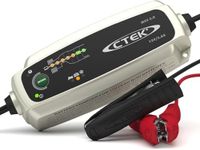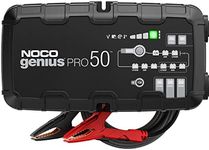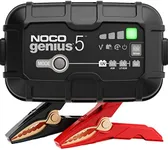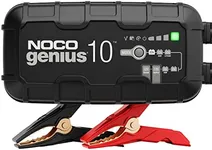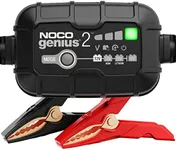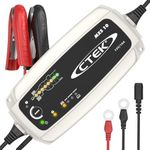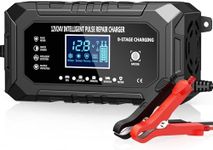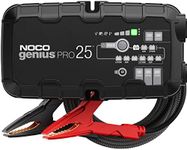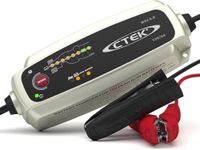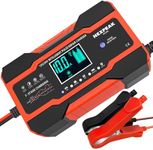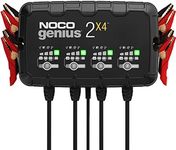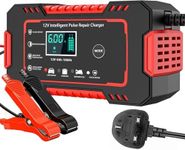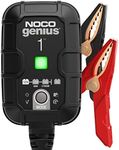Buying Guide for the Best Car Battery Chargers
Choosing the right car battery charger is essential for maintaining your vehicle's battery health and ensuring it is always ready to go. A good charger can extend the life of your battery, save you from unexpected breakdowns, and provide peace of mind. When selecting a car battery charger, consider the type of battery you have, the charging speed you need, and any additional features that might be beneficial for your specific situation.Charger TypeCar battery chargers come in different types, including trickle chargers, smart chargers, and jump starters. Trickle chargers provide a slow, steady charge and are ideal for maintaining a battery over time. Smart chargers can automatically adjust the charge rate and are suitable for regular use and maintenance. Jump starters are portable devices that can start a car with a dead battery. Choose a charger type based on how you plan to use it: for regular maintenance, emergency starts, or both.
AmperageAmperage refers to the current output of the charger and determines how quickly it can charge a battery. Low amperage chargers (1-2 amps) are suitable for maintaining a battery over time, while higher amperage chargers (10 amps or more) can charge a battery more quickly. If you need to charge a battery quickly, opt for a higher amperage charger. For long-term maintenance, a lower amperage charger is sufficient.
Voltage CompatibilityMost car batteries are 12 volts, but some vehicles, like motorcycles or older cars, may use 6-volt batteries. It's crucial to choose a charger that matches the voltage of your battery. Some chargers are versatile and can handle both 6-volt and 12-volt batteries. Ensure the charger you select is compatible with your vehicle's battery voltage to avoid damage.
Battery Type CompatibilityCar batteries come in different types, such as lead-acid, AGM, and lithium-ion. Not all chargers are compatible with every type of battery. Check your battery type and ensure the charger you choose is designed to work with it. Some chargers are versatile and can handle multiple battery types, which is useful if you have different vehicles or battery needs.
Safety FeaturesSafety features in a car battery charger can prevent accidents and damage to your battery. Look for features like reverse polarity protection, which prevents damage if the clamps are connected incorrectly, and overcharge protection, which stops charging once the battery is full. These features are important for both beginners and experienced users to ensure safe and effective charging.
PortabilityPortability is an important consideration if you need to use the charger in different locations or keep it in your vehicle for emergencies. Smaller, lightweight chargers are easier to transport and store. If you plan to use the charger primarily at home, portability may be less of a concern, but for on-the-go use, a compact and portable charger is ideal.
Additional FeaturesSome car battery chargers come with additional features like digital displays, which provide information on the charging status, or built-in testing functions to check battery health. These features can be helpful for users who want more control and information about their battery's condition. Consider what additional features might be useful for your needs and choose a charger that offers them.
